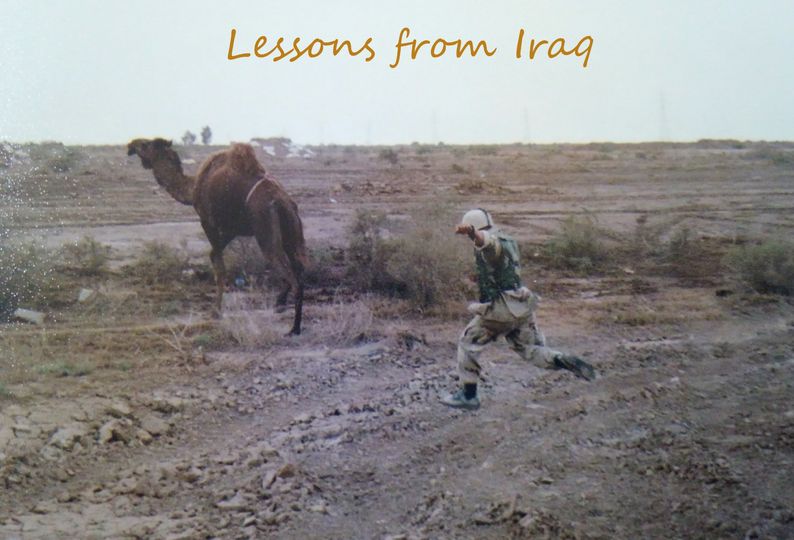
Lesson 101
Thousands of nineteen and twenty-year-old Marines cut loose in a desert. How often did this camel get chased?
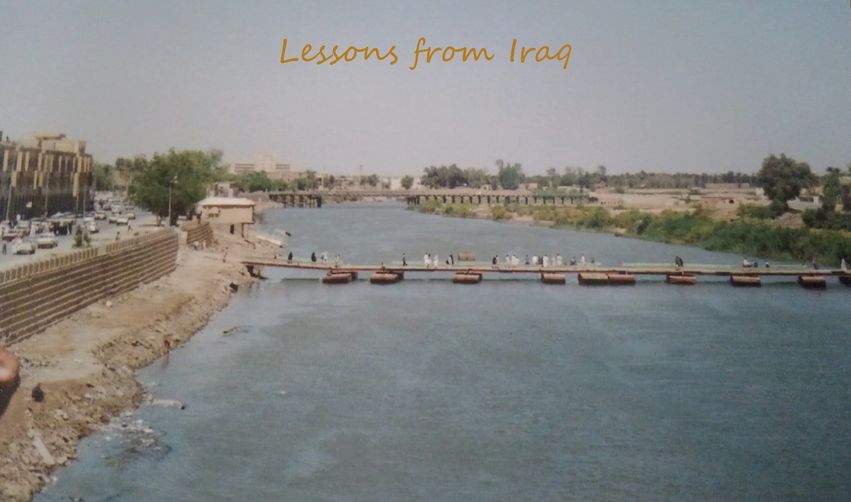
Lesson 102
When America goes to war it brings its own bridges.

Lesson 103
This picture could be a postcard for the invasion year. Sand, smoke, palm trees, and a broken-down Iraqi fighting vehicle.
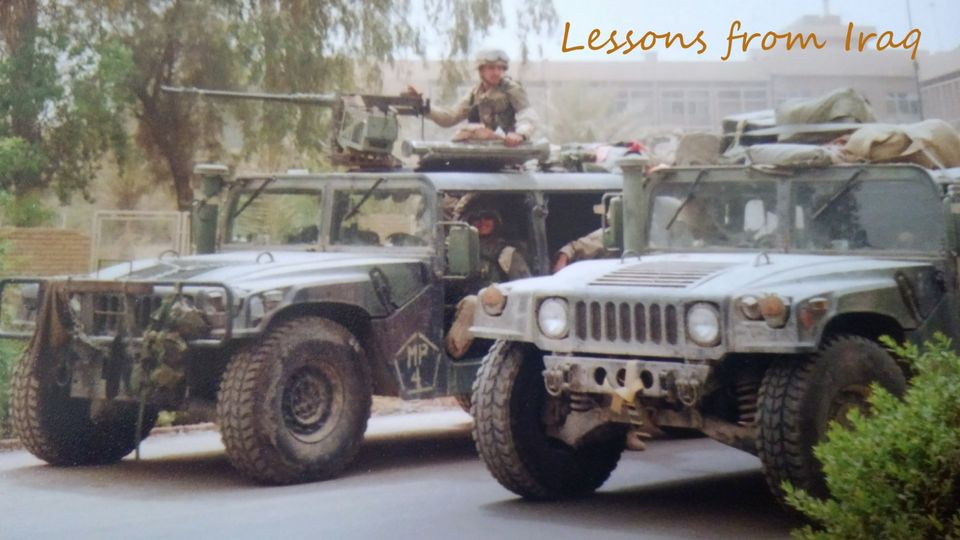
Lesson 104
When the 50 starts bucking, it rocks the whole truck.

Lesson 105
Dealing with women was a little different. Many older women and little girls interacted with us on the streets. Most women of the ages in between kept their distance.

Lesson 106
Manmade sandstorm
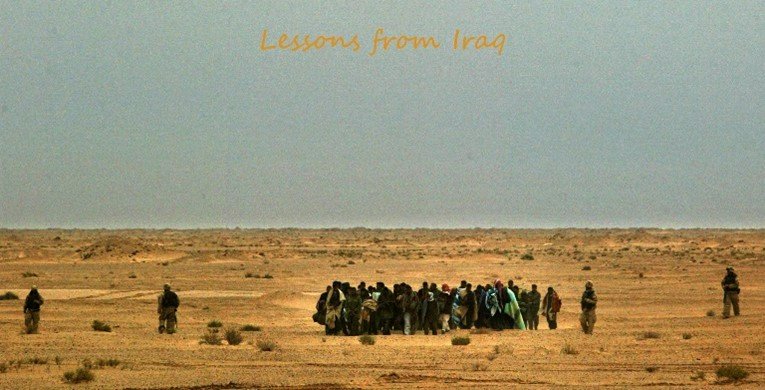
Lesson 107
When you’re close, you understand the context. The farther away you get, the harder it is to see what’s really going on.

Lesson 108
On the second day of the invasion, the entire sky is blanketed with thick black smoke from burning oil fields. Midday looks like late evening, like the sun has already set and the darkness is coming. The smoke cloud is oppressive. I feel like I’m in a cavern underground instead of open desert. My unit stops next to a burning pipeline. The fire burns hot and high, thirty-foot flames belching greasy fumes into the sky. When the wind shifts, I feel the warmth of fire on my skin.
A couple hours into the day, an Iraqi man with a thick moustache approaches our position and begs us to put a sandbag over his head while he talks to us. Our CO doesn’t want to do this. For weeks, US forces have been dropping leaflets in Southern Iraq telling the people we’re here to help. A sandbagged Iraqi man on the side of the road sends the wrong message. But the man insists.
“Please, sir. Please cover my head,” he says to our translator. “If anyone sees me here, my whole family will be murdered.”
The man is the commander of the local army, and he has come to surrender. Some of his men surrendered to us the day before, and he told the rest to stack their weapons and uniforms and go home. But Saddam’s spies are still everywhere, and if they see him talking to US forces, those still loyal to the regime will make an example of him.
“Jesus Christ,” Romero says, coming back to the Humvee. “You believe that shit? Murder a dude’s whole family just for talking to us?”
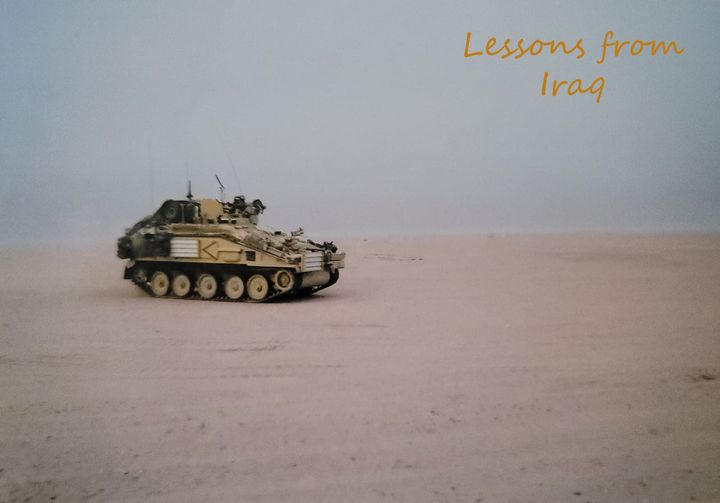
Lesson 109
I have no idea what this is, but I think it’s British.
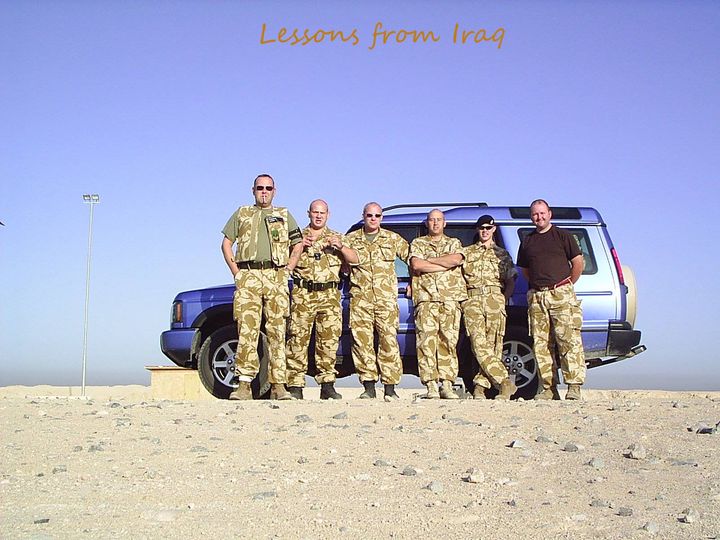
Lesson 110
Some friends from across the pond.
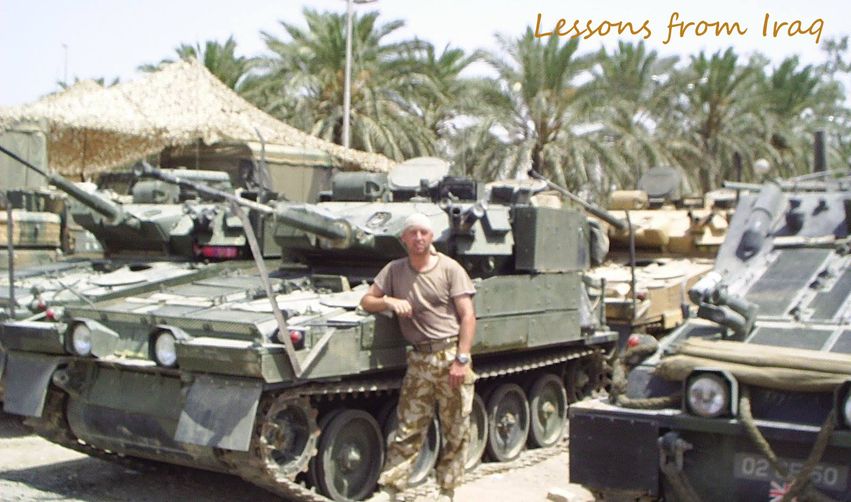
Lesson 111
I was amazed to learn that British soldiers get rations of beer.

Lesson 112
Fun with optics??
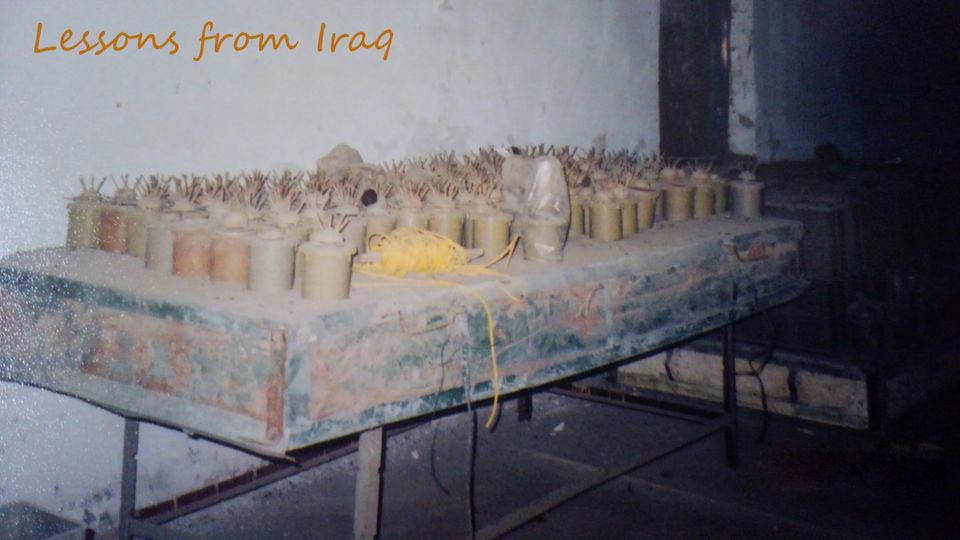
Lesson 113
A few nasty little buggers they didn’t get a chance to deploy.

Lesson 114
Almost every Humvee had a “shitter box” around the exhaust pipe. This was an empty ammo crate you placed over the hole you dug so you had something to sit on while you shit.
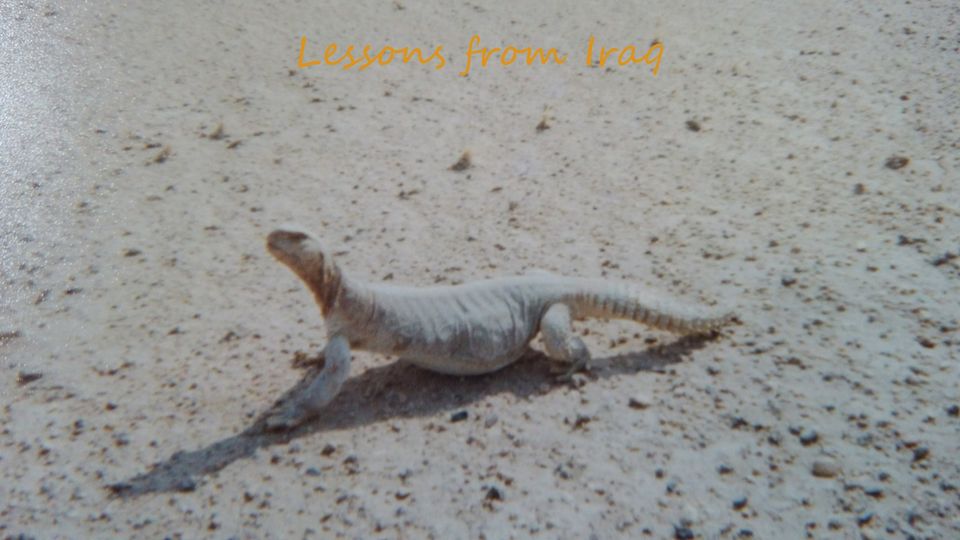
Lesson 115
Even in a war it’s cool seeing new things
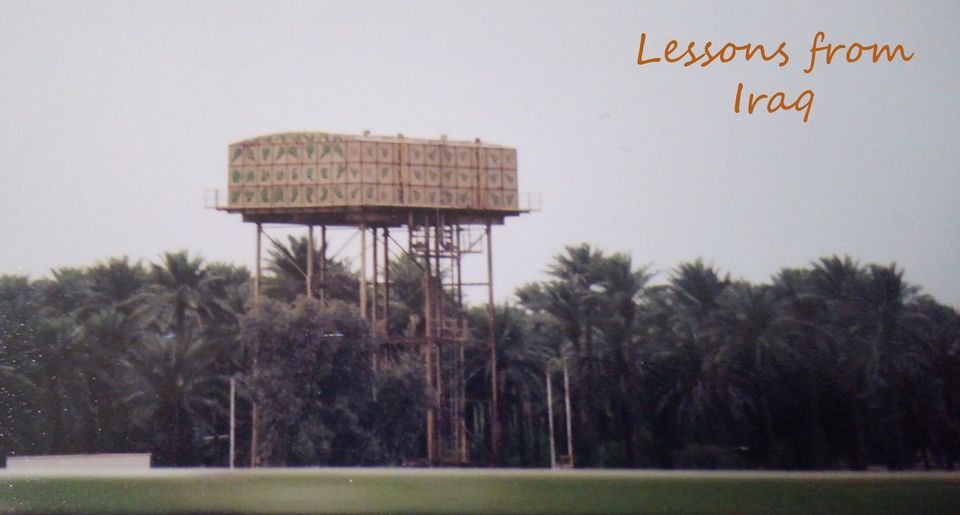
Lesson 116
These towers always made me real uneasy. They were probably just water towers, but in Iraq, who the hell knows.

Lesson 117
Peters finds a puppy abandoned by one of the roving packs of dogs. He takes it in, cares for it, feeds it, and tries to teach it tricks. For a few days, this puppy becomes a mascot for our unit, guys stopping by to pet it and watch it play. The puppy responds to the love and attention the way that puppies do, with happy yelps and a lot of tail wagging.
I don’t know why Peters bothers. In a few days we’ll have to move again, and he’ll have to leave the puppy behind. Peters will feel terrible about it because he’s a warm-hearted guy. And now the puppy will be under the misapprehension that humans are friends. When we leave the puppy, he’ll likely be shot or run over by a convoy, or he’ll be hunted down and eaten by other dogs. If he somehow manages to fight his way to adulthood, he’ll become just like the other dogs in Iraq, a scabby mutt with nothing on his mind but hunger, roaming the countryside subsisting on garbage and corpse flesh.
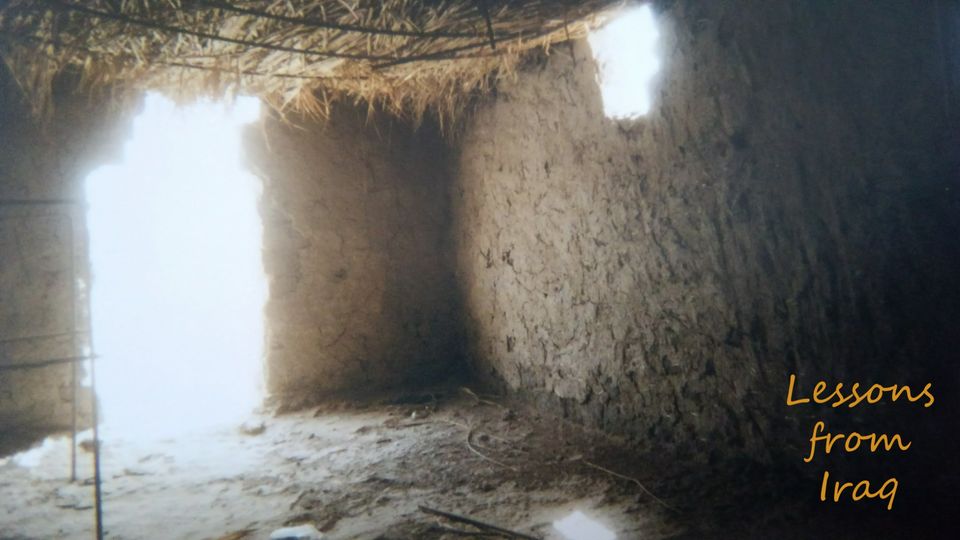
Lesson 118
Family home in southern Iraq.

Lesson 119
Not what I want to see over my mud hut.
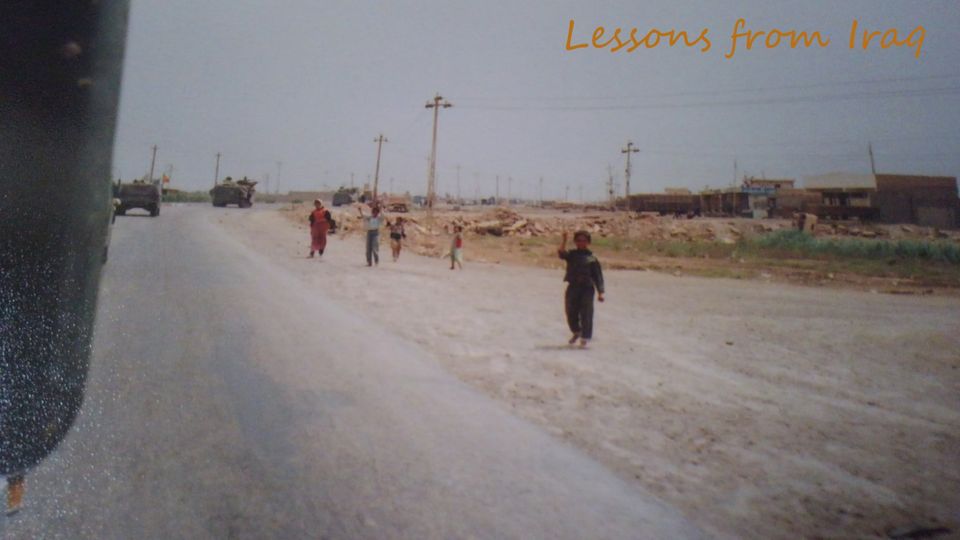
Lesson 120
Kids were always a sign. If the kids were waving it meant something about the neighborhood. If the kids were yelling and kicking the bottoms of their feet at you, you knew exactly the neighborhood you were in.
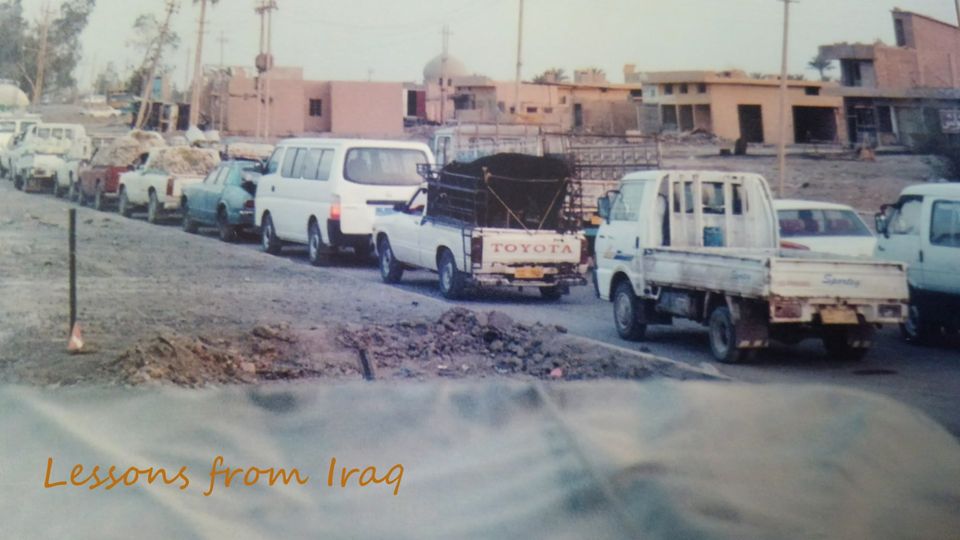
Lesson 121
Iraqis could jerry-rig anything. Years of sanctions taught them how to keep their trucks running without access to parts. This is maybe why some of them were so good at making IEDs later on.
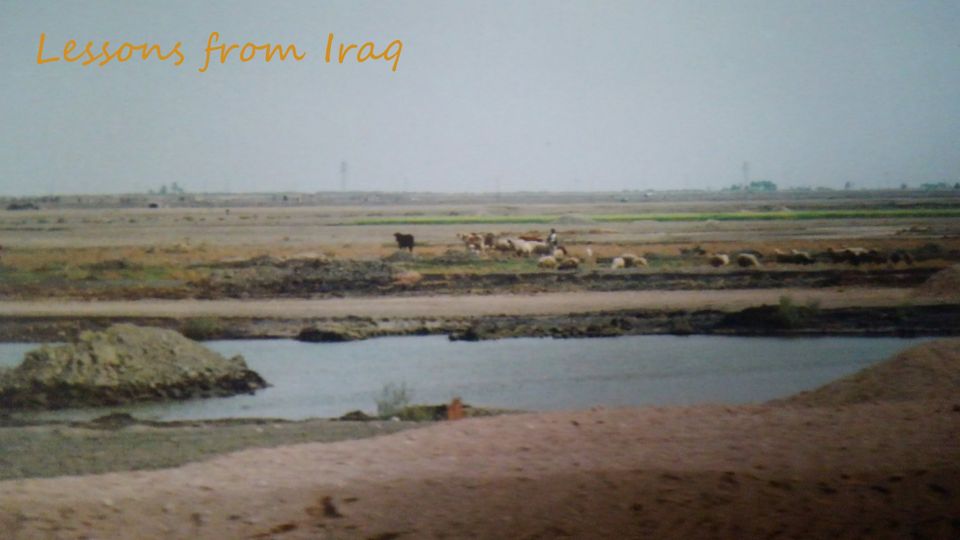
Lesson 122
Iraqi Pastoral

Lesson 123
Looks like the end of the world, like some corpse should stand up and come staggering across the bridge.
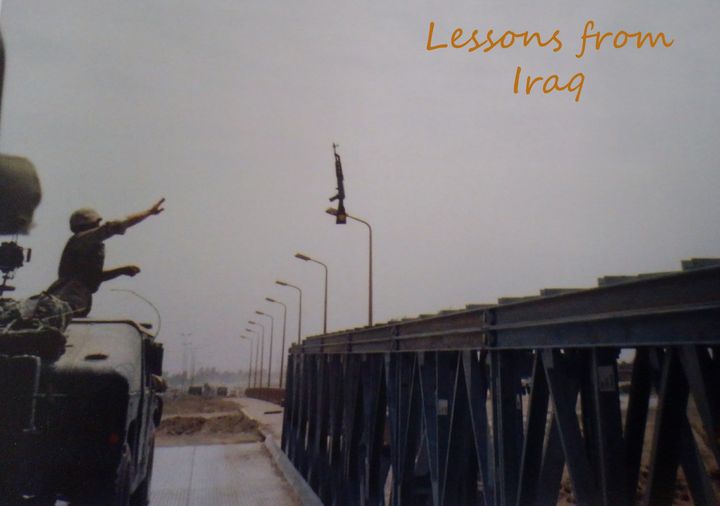
Lesson 124
I’m sure there’s an arsenal and many bodies at the bottom of the Euphrates.
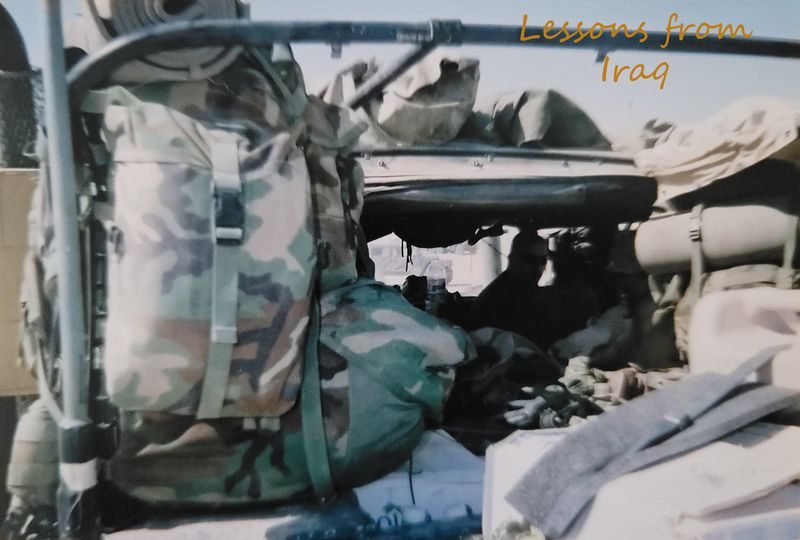
Lesson 125
Humvee Life (3)

Lesson 126
Luxury accommodations (1)
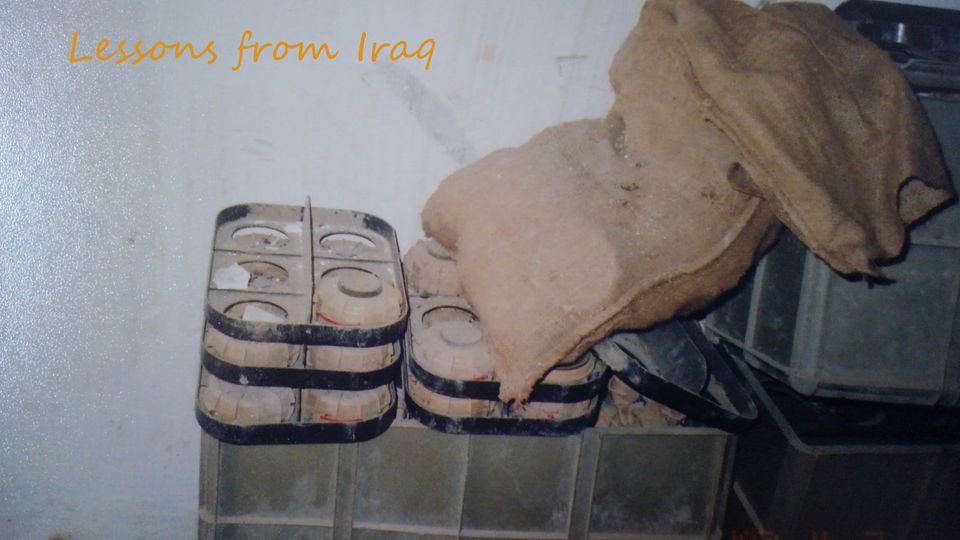
Lesson 127
When the looting started, huge crowds swarmed the cities. They were often in families and often carrying burlap sacks. At the time, I thought they were carrying potatoes or other food in those sacks, but this makes me wonder.

Lesson 128
Unfortunately for Private Schmuckatelli, his plane ticket was non-refundable.
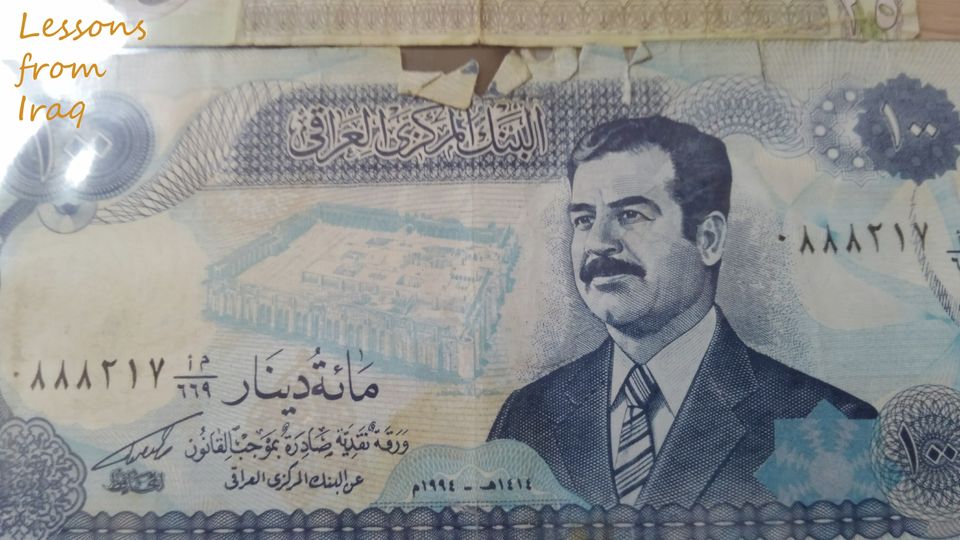
Lesson 129
This guy put his face on everything.
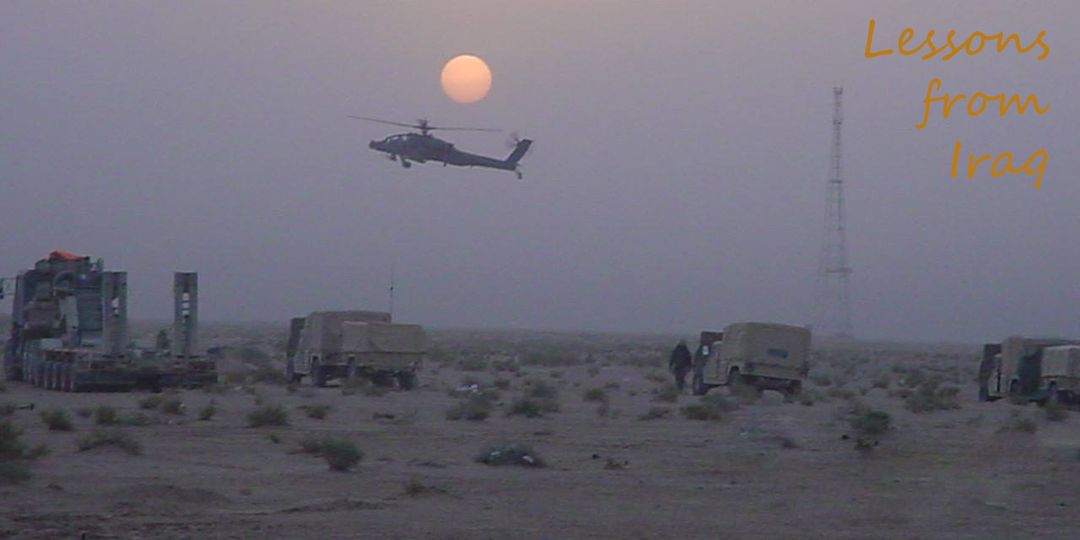
Lesson 130
Sometimes, in the middle of nowhere, a scene hits just right.
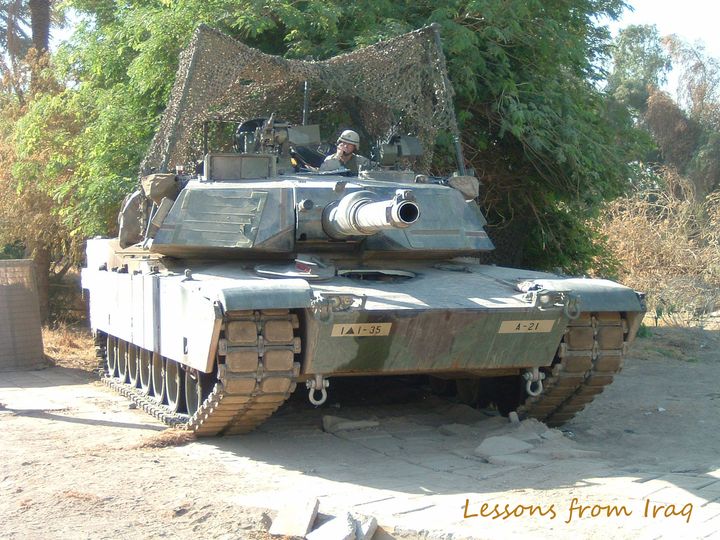
Lesson 131
I can still feel the ground shake as these rumble down the highway.
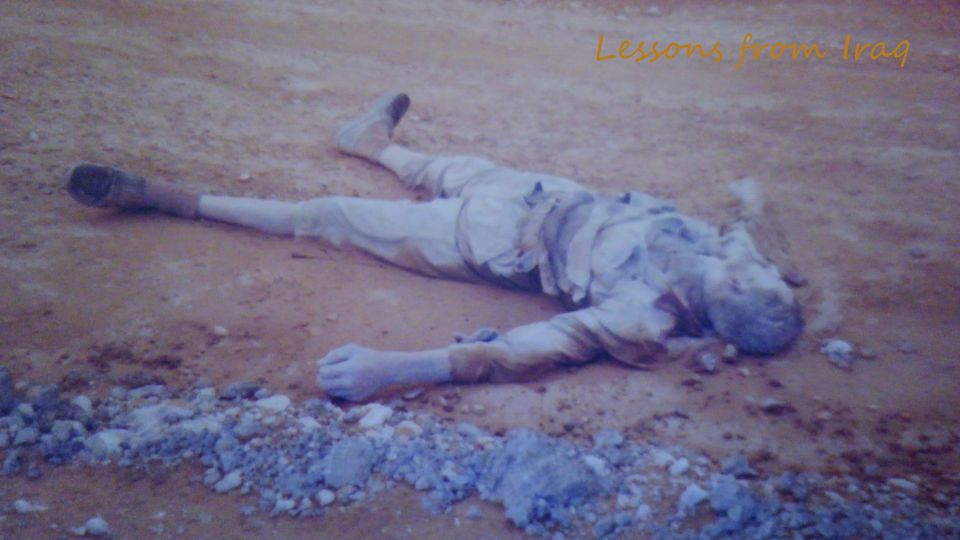
Lesson 132
Two-day-old, powdered corpse, an Iraq War specialty.
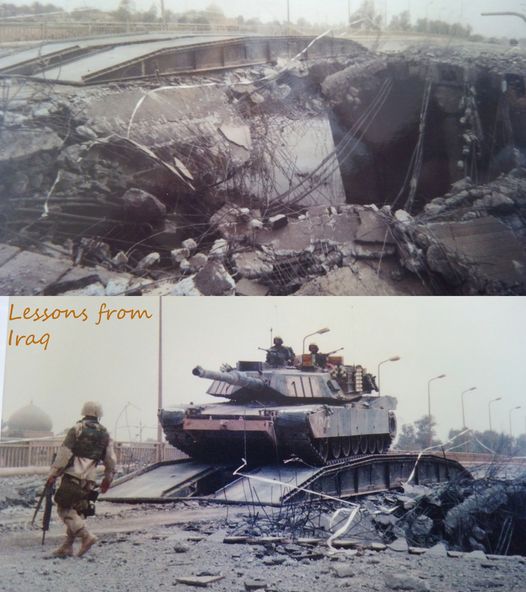
Lesson 133
Iraqi forces destroyed many bridges trying to slow the progress of American forces. It didn’t work.
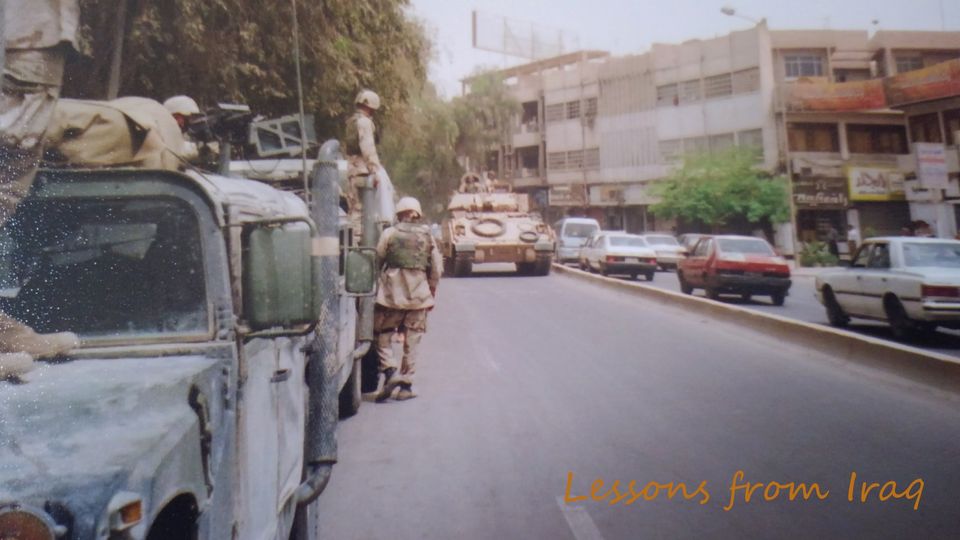
Lesson 134
Welcome to Baghdad

Lesson 135
“Taxi!”
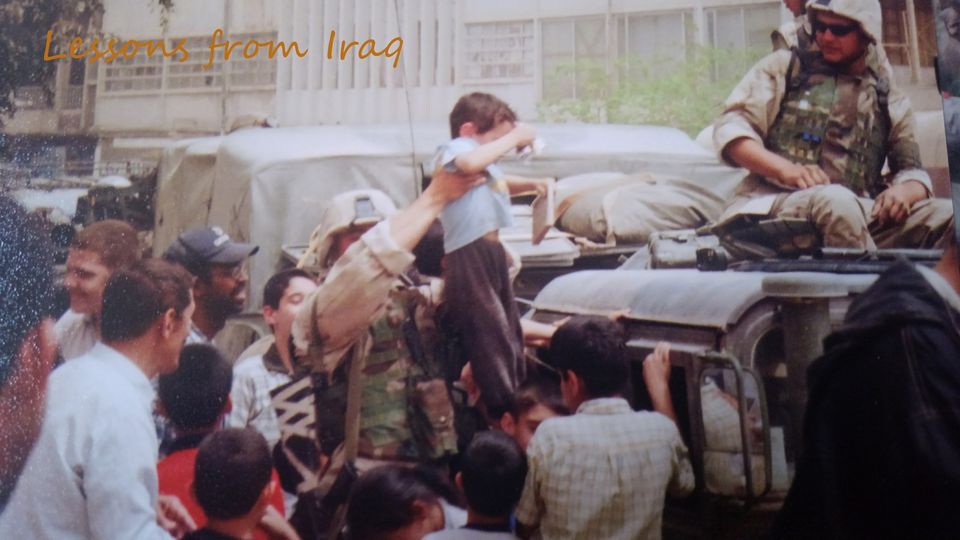
Lesson 136
People forget, a lot of Iraqis were happy to see us arrive. Things started to turn because of decisions made later.
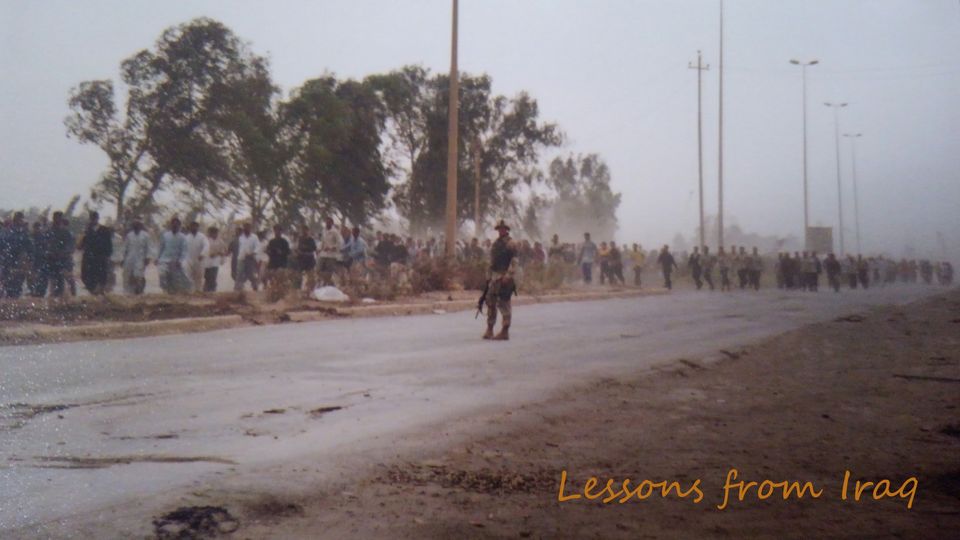
Lesson 137
There were huge migrations of people like this everywhere. Some were avoiding danger. Most were going into cities and taking out anything they could carry.

Lesson 138
Iraq was in chaos shortly after we took down the regime. Roving gangs, foreign insurgents, militias, and looters made parts of Iraq unlivable. A lot of this was caused by decisions made by politicians. American soldiers and Iraqi civilians alike had to endure it.
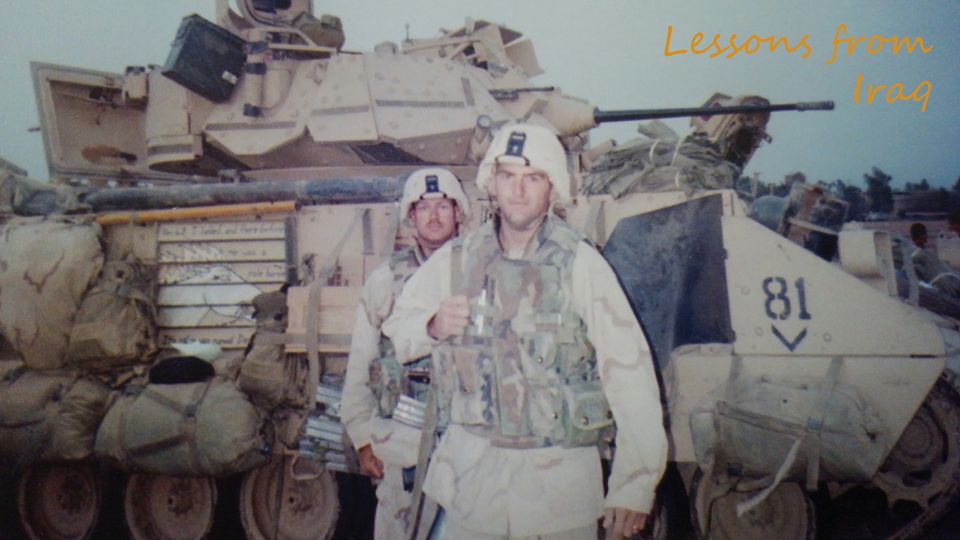
Lesson 139
Armored gypsy wagon.

Lesson 140
Marine “Glamour Shots”
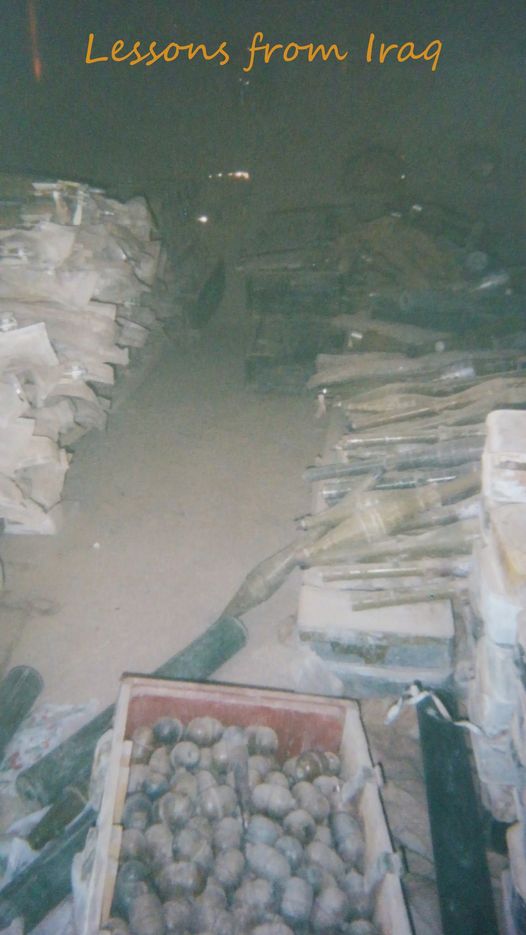
Lesson 141
Big weapons cache.
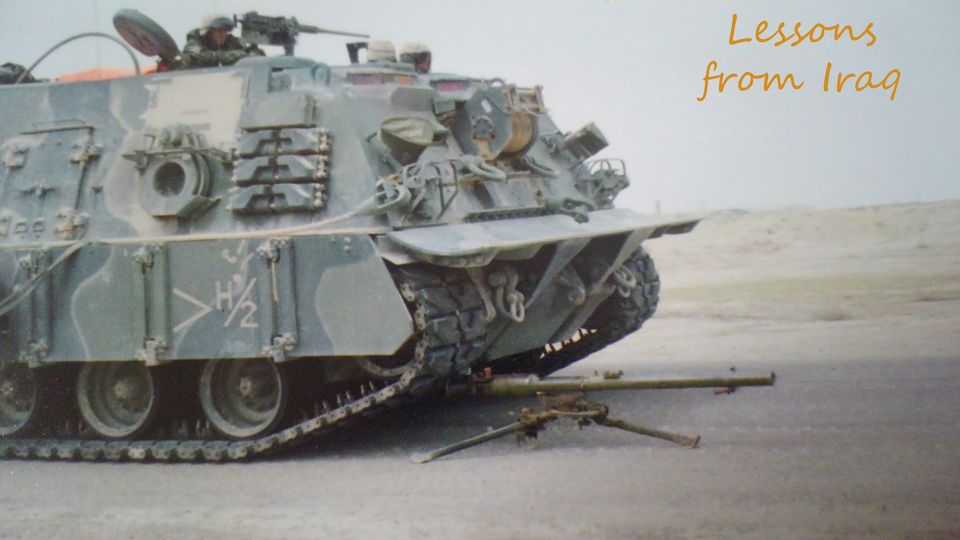
Lesson 142
One way to solve a problem.
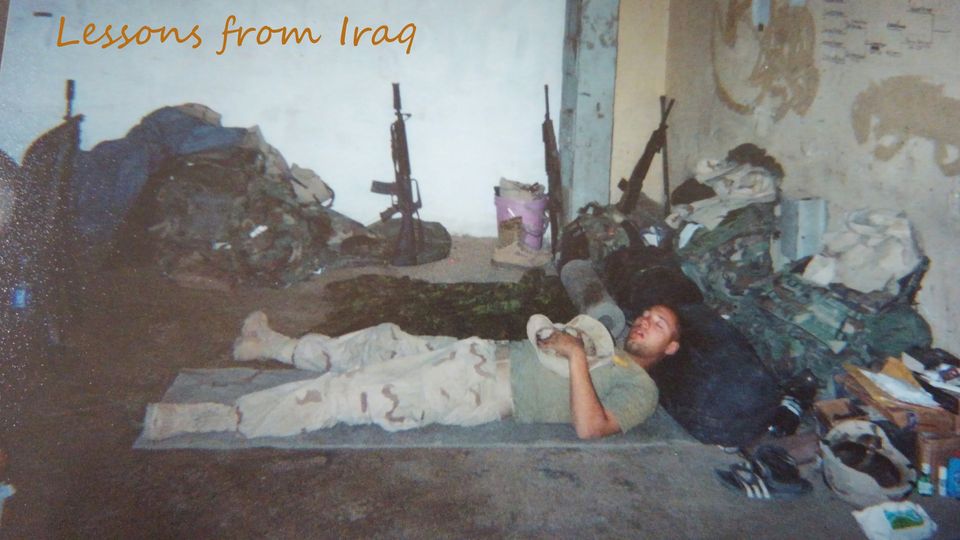
Lesson 143
Four walls and an iso mat. Life is good.

Lesson 144
Anything and everything can be a gym.
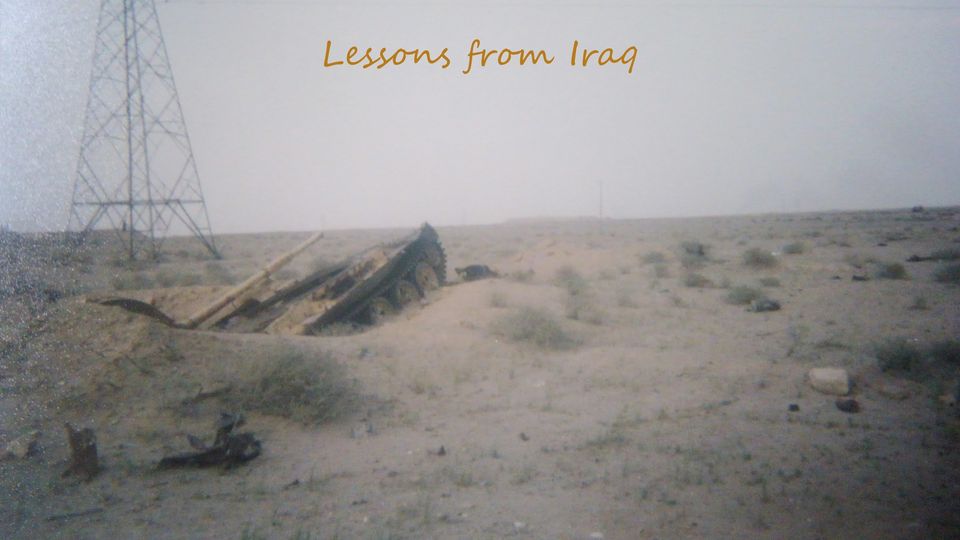
Lesson 145
In the 80s and early 90s, Iraq’s army fought two devastating wars and lost hundreds of thousands of soldiers. The regime was able to smuggle in mountains of weapons in the late 90s, but the military was still a shell of its former self. It had become little more than a force for slaughtering Kurds and Shiites and keeping the regime in power.
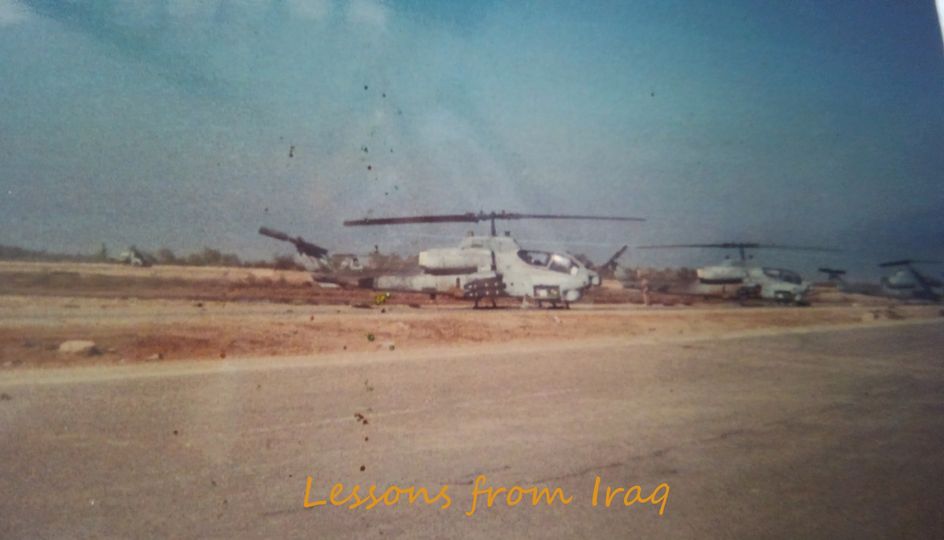
Lesson 146
There’s nothing like a pack of Cobras hunting nearby to ease your nerves.

Lesson 147
Death in a war zone is unceremonious, face-down in the dirt, bodies left to rot in the sun.
Lesson 148: Real Scenario (from chapter 10)
A Civil Affairs Group and a few of our guys take four prisoners at a granary—Fedayeen loyalists who have been threatening to torture and murder the family who operates the granary as soon as American forces leave the area. My team drives up as two Marines heckle the prisoners.
“This was your boy, right?” one Marine says, holding up a painted portrait of Saddam Hussein.
The Iraqis look confused, so the Marine uses hand signals.
“You.” he points at the prisoners then rubs his index fingers together side by side, which means something like “friend”, then points at Saddam.
The prisoners spit at the painting and shout curses. One fat young man, obviously moneyed, with milky soft skin like no Iraqi man I’ve seen, kicks his sandals at it, saying,
“No Saddam! Bad Saddam!”
“Yeah, right, motherfucker,” the Marine says, dropping the painting on the ground, and leaving to search more of the granary.
As soon as the two Marines leave, the fat milk-skinned boy blows kisses at the painting, bows his head, and fervently mutters like he’s repenting of a sin. I guess he doesn’t notice me watching.
When the CAG doesn’t need my team anymore, we head back down the road to link up with our platoon. I feel good that we were here. These guys had nasty intentions. I’m sure of that. Hopefully now the family at the granary can find some peace.
On our way out of the compound, we drive past a forklift on the side of the road. A dead Iraqi man is stuck on the end of the forks, flopping in the air while the operator tries to shake him free. The body jiggles up and down, legs and arms flailing for several seconds. A soldier steps out of the forklift with a long metal rod. He wedges the rod between the body and the metal frame of the lift. He pries at it, throws all his weight behind it. The body pops free and drops into an unmarked pit in front of the lift. The soldier gets back in the cab to look for more bodies.
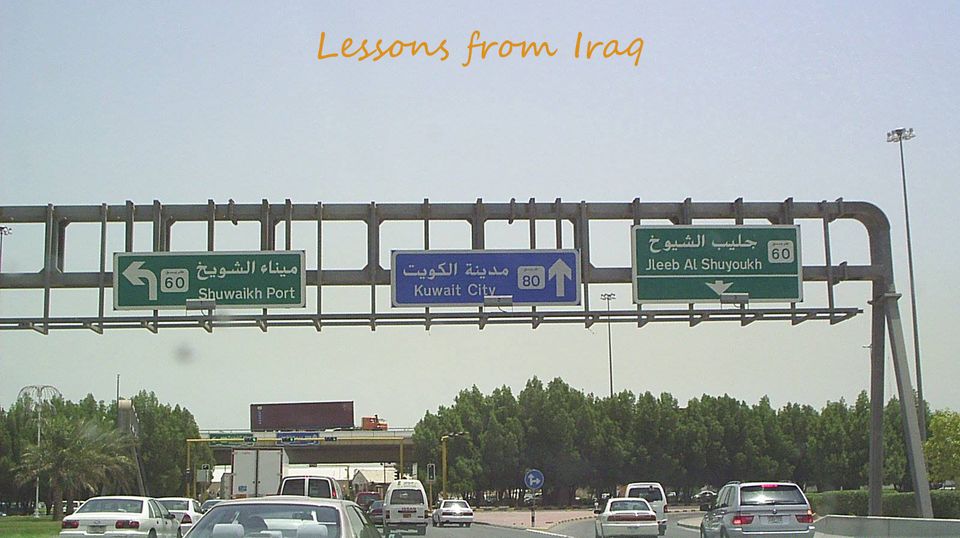
Lesson 149
A little time in Kuwait.

Lesson 150
But it’s a dry heat.
